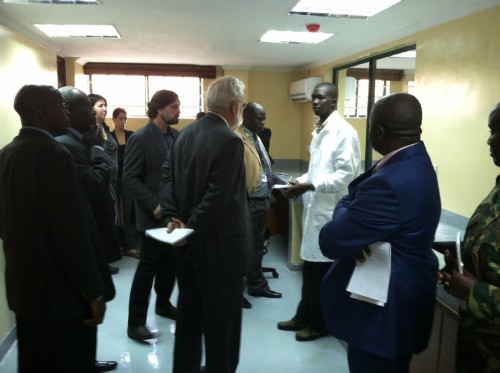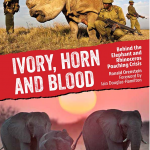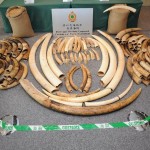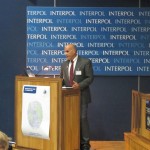
A multi-national delegation, headed by Dr. William Clark of INTERPOL, has conducted a two-day training workshop and site inspection at the DNA Forensics Laboratory at Kenya Wildlife Service (KWS) headquarters in Nairobi.
This was done in order to assist KWS in making the laboratory fully operational in 2014. The delegation included DNA forensic and law enforcement experts from Israel, India, Netherlands and the United States.
A fully functioning DNA forensics lab will undoubtedly assist KWS and result in an increase in prosecutions and convictions of wildlife offenders. According to Moses Otiende, molecular biologist and head of the new laboratory, the concept of a KWS DNA forensics laboratory began about 3 or 4 years ago in response to new challenges faced by law enforcement particularly in combating the rising trade in bush meat, where dealers skin and debone their quarry frustrating law enforcement efforts to identify which species are involved. KWS recognized the value of being able to use DNA analysis in not only addressing the bush meat trade but also in addressing the alarming rise in poaching and trafficking of many Kenyan wildlife species, including elephants and rhinos.
Indicative of the broad level of international support for the new lab, the site visit and training workshop was facilitated by some of the most recognizable names in wildlife DNA analysis, including David E. Schindel, Ph.D. of the Consortium for the Barcode of Life, Samuel Wasser, Ph.D. Director of the Center for Conservation Biology at the University of Washington, Gila Kahila Bargal, Ph.D and Lia Hadas of the Hebrew University in Jerusalem, and Samrat Mondol, Ph.D. of India. Law Enforcement experts included Rony Malka and Eldad Pelled of Israel Nature and Parks Authority, Pauline Verheij of Ecojust in the Netherlands and Sal Amato of the United States.
The workshop was well attended by KWS laboratory staff and law enforcement personnel. In addition to presentations and training, the workshop included a mock trial presented to an actual magistrate by KWS prosecution officer Didi Wamukoya. The mock trial was designed to expose KWS investigators and laboratory staff to the rigors of testifying at trial including potential pitfalls and defense challenges. The delegation also conducted a site visit and inspection of the new laboratory facility and provided KWS with recommendations in the areas of security, laboratory protocols, safety, and infrastructure support.
At its most simple, wildlife forensics seeks to link the crime scene, the suspect, and the victim in a way that is admissible in court and can be used to prosecute and convict those involved in wildlife crime. Cutting edge criminalistics, including DNA analysis, is an important tool that should be applied by law enforcement agencies involved in the fight against wildlife poaching and trafficking. I applaud KWS for recognizing the evidentiary importance of DNA analysis and taking the necessary steps to bring this capability to their enforcement efforts.




